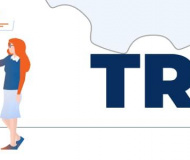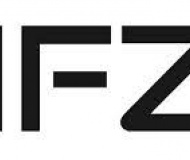Security Token Offering
Date added: :
13.11.2018

Currently it is difficult to find a person, who has never heard the abbreviation «ICO». Over the past year and a half, the amount of funds raised as a result of the ICO exceeded the amount of venture financing. The advantage of ICO was (and remains) the fact that a company seeking to attract funds exchanges its tokens for cryptocurrency (or fiat money) and at the same time it does not have to sell its shares or stocks (depending on the legal form). In turn, investors who bought tokens can participate in a project, which they want to support. Most ICO companies produce the so-called utility tokens, the essence of which lies in the fact that they record the investor's right to access any company service, which may not yet exist and be only at the development stage at the time of token purchase. Thus, while the token itself is worth nothing besides promises which may never be realized, this token is nothing more than funny money.
Indeed, today such a concept of attracting capital as STO is gaining popularity, that is, the issuance of tokens that provide their acquirer with rights similar to those, with which securities provide their holders; or these tokens are «tied» to real securities, thus «tokenizing» their . This type of token is called security token.
It is necessary to take into account that the classification of types of securities is very extensive and, accordingly, security tokens can be of many types, not only stocks and bonds. So, for example, a token that grants the right to its holder for a previously determined amount (for example, under the terms of issue) to purchase a certain product is an option, i.e. derivative security of this commodity. Security token can provide the holder with a number of rights, ranging from the right to receive dividends in a certain amount determined by documents on issue, and full-fledged rights to participate in a legal entity and to form the highest body of such a legal entity (that is, in fact, an expression of a «digital» share, stock, interest - depending on the legal form of the legal entity).
Issuing security tokens requires serious preparation, since despite the technical identity of the two processes (STO and ICO), and because of the fact that rights granted by the security token are fundamentally different than the utility token, and actually issuing security tokens is equivalent to the issue of ordinary securities. Thus, the issuer must comply with the legislation on securities and securities circulation (note: depending on the jurisdiction, this may be one or more regulatory legal acts). Failure of the issuer to comply with the aforementioned legislation will lead to the imposition of certain sanctions on him (from the prohibition to hold senior positions and fines up to imprisonment).
In our opinion, today holding a public STO is impossible due to refusal of exchanges and depositories to work with blockchain. However, it is possible to make a private offer of securities. For example, holding a private offering in the United States or with the alleged participation of American investors implies getting an exception from the registration of securities (due to the fact that full registration, i.e., an IPO, is currently impossible).
The main exceptions are the following:
Regulation D - an issuer must submit a “Form D ” before the sale or within 15 days from the moment of the first sale of the security. Regulation D can be of three types - 504, 506 (b), 506 (c). 504 allows you to attract investments up to $ 5,000,000 without the right to advertise, 506 (b) allows as well without advertising to attract investments in unlimited amounts from accredited investors and from not more than 35 non-accredited investors. 506 (c) - allows you to attract investments exclusively from accredited investors, but allowing you to advertise such an offer. In most cases, investors who buy regulation D securities are not allowed to sell their securities for at least 12 months after their initial purchase, according to rule 144;
Regulation A - gives an issuer the right to offer a security to uncredited investors through the preparation of an offer in the amount of up to $ 50 million. Due to the need to protect investors, an issuing company must be incorporated in the USA. An issuer must prepare a circular on Form 1-A, provide maximum disclose of information, including submission of financial statements.
Regulation S - applies if the securities offer is conducted in any country other than the United States. In this regard, it is not subject to the requirement of mandatory registration of securities or receipt of exceptions from the obligation to register the issue. However, Regulation S does not exempt an issuing company from complying with its national legislation on securities and stock exchanges.
For instance, in the EEA countries (European Economic Area), there are the following exceptions that make it possible to classify the supply of securities as private, not public:
- An offer is addressed only to qualified investors or,
- An offer is addressed to qualified investors and to not more than 150 unqualified investors for each EU country + Norway, Iceland, Liechtenstein or,
- An offer is addressed to investors, each of whom is willing to purchase securities in the amount of 100,000 euros or more or,
- Offering a security with a nominal value of each security in the amount of 100,000 euros or more or,
- The total amount of securities offered during the year is not more than 1,000,000 euros for all EEA countries (EU countries + Norway, Iceland, Liechtenstein), where the security offer is made.
Another important aspect is that STO obliges issuing companies to carry out KYC (identification) procedures , as well as keep a register of security tokens owners.
In general, summarizing, it is necessary to take into account that STO is a much more complicated procedure than an ordinary ICO and requires much more serious efforts when preparing an offer.
So, in the offering memorandum we recommend the full disclosure of information about the company, its corporate structure, final beneficiaries, directors, financial results, competitors and, naturally, to describe the offer itself in detail as much as possible. For example, it is necessary to reflect the amount of issue, the rights that the security token gives, the procedure for the implementation of these rights.
© Alexander Shushin, Law & Trust International Lawyer, 2018
Law&Trust International provides a full range of legal consulting services for STO and ICO. The extensive experience of the company's lawyers and a professional comprehensive approach will save your costs and prevent from rash decisions!
















